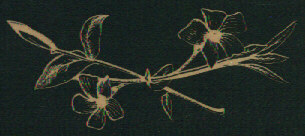Nonfiction
-Plants
-Animals
--Invertebrates
--Vertebrates
---Fish
---Reptiles
& Amphibians
---Birds
---Mammals
-General
Fiction
DVDs/Videos

|
Carson, Rachel. Silent Spring.

- Title
- Silent Spring
- Author
- Carson, Rachel L.
- Introduction
- Gore, Al (1994)
- Publisher
- Houghton Mifflin Co., New York
- Year
- 1962
- ISBN
- 0395683297 (Paperback)
- Illustrations
- Darling, Lois and Louis
- Table of Contents
- Contents
- Bibliography
- List of Principle Sources
- Index
- Index
- Pages
- 368
- Categories
- nature, pesticides, environment, biology, pollution,
conservation, science, ecology, toxicology, wildlife, insect pests
- Language
- English (en)
- My Summary
- This book is mainly about how man is poisoning his own
environment and usesthe example of pesticides. It is well-researched
and informative, scientifically correct but easily readable. It
hasn't lost any of its importance in the last 30 years because man is
still mesmerized by the possibility that one can subdue nature by
brute force rather than work with her. The only difference is that
now one is not looked upon as some kind of crazy nut when one tries
to further the cause of alternative or integrated pest management.
Highly recommendable. But don't buy it if you only want to see what
Al Gore has to say; he doesn't say much of importance in this book.
Buy Earth in the Balance instead.
- From the Book Cover
- Rarely does a single book alter the course of history, but
Rachel Carson's Silent Spring did exactly that. The outcry
that followed its publication in 1962 forced the banning of DDT and
spurred revolutionary changes in the laws affecting our air, land,
and water. Carson's passionate concern for the future of our planet
reverberated powerfully throughout the world, and her eloquent book
was instrumental in launching the environmental movement. It is
without question one of the landmark books of the twentieth century.
Silent Spring served as a touchstone for Al Gore while he
was working on his widely praised, beststelling book on the
environment, Earth in the Balance.
Now Rachel Carson's message is more important than ever, and no one
is more qualified than Al Gore to introduce her classic book to a new
generation of readers.
- From the Introduction by Vice President Al Gore
- Silent Spring came as a cry in the wilderness, a
deeply felt, thoroughly researched, and brilliantly written argument
that changed the course of history. Without this book, the
environmental movement might have been long delayed or never have
developed at all.
- Summary from Amazon.com
- Silent Spring, released in 1962, offered the first
shattering look at widespread ecological degradation and touched off
an environmental awareness that still exists. Rachel Carson's book
focused on the poisons from insecticides, weed killers and other
common products as well as the use of sprays in agriculture, a
practice which led to dangerous chemicals to the food source. Carson
argued that those chemicals were more dangerous than radiation and
that for the first time in history, humans were exposed to chemicals
that stayed in their systems from birth to death. Presented with
thorough documentation, the book opened more than a few eyes about
the dangers of the modern world and stands today as a landmark work.
- Summary from Bookpages
- Focuses on the effects of the indiscriminate use of
chemicals, describing how pesticides and insecticides are applied
almost universally to farms, forests, gardens and homes with scant
regard to the contamination of the environment and the destruction of
wildlife.
- The New York Times Book Review, Lorus Milne and
Margery Milne
- Her book is a cry to the reading public to help curb private
and public programs which by use of poisons will end by destroying
life on earth.... Miss Carson, with the fervor of an Ezekiel, is
trying to save nature and mankind...
- From 500 Great Books by Women; review by Prudence
Hockley
- Silent Spring, one of the first calls for public
awareness and environmental action and a seminal work of the 1960s,
examines the way dangerous chemicals have been used without
sufficient research or regard for their potential to harm wildlife,
water, soil, and humans, creating a sinister chain of poisoning and
death. Silent Spring is meticulously researched and
accessible to the lay reader; its message is as clear as it is
devastating: humans have willfully disturbed the whole web of life,
the "intimate and essential relations" between the earth
and all its passengers, animate and inanimate. Rachel Carson's work
is informed by an appreciation of the intricate beauty of a
flourishing environment, her sorrow over what has already been
irrevocably changed or lost, and her sense that humankind is
immeasurably diminished by heedlessness and aggression. Thirty years
after it was first published, this landmark study is still eloquent,
chilling, and, regrettably, timely. Also a portrait of corporate
greed and the arrogance and irresponsibility of control agencies and
individual specialists, Silent Spring speaks out against the
way in which a single species, gifted with ingenuity and
intelligence, has misused its power to assault the integrity of the
environment. An elegy to a world once perfectly in balance, it is a
heartfelt call for imagination, care, and humility, as we move to
pre-empt our own destruction and find a way to live harmoniously in
our natural world.
- See and/or order this title at
 Amazon.com: Amazon.com:
-
- See and/or order this title at
 Amazon.co.uk: Amazon.co.uk:
-
- No longer available (but if you send me an e-mail
message, I'll try to find you a used copy):
-
 Paperback, 320 pages, Penguin, 1965, ISBN
0140022686 Paperback, 320 pages, Penguin, 1965, ISBN
0140022686
 Reprint Edition, Paperback, 368 pages,
Houghton Mifflin, 1994, ISBN 0395683297 Reprint Edition, Paperback, 368 pages,
Houghton Mifflin, 1994, ISBN 0395683297
 Turtleback, Rebound by Demco Media, 1994,
ISBN 0606056009 Turtleback, Rebound by Demco Media, 1994,
ISBN 0606056009
- Other works by same author
-
- Related Links
-
|



![]()


